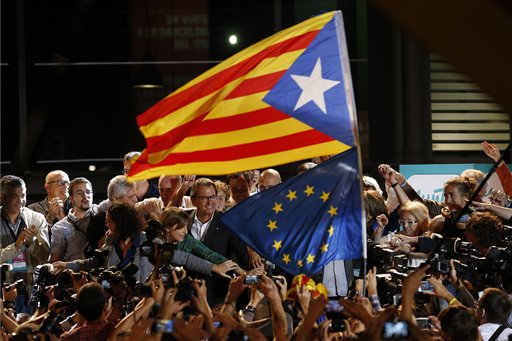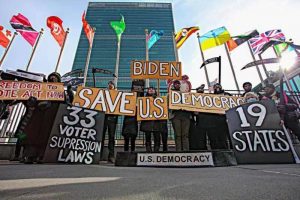Last week, the Spanish Parliament decided with a majority of 187 out of 350 votes to grant amnesty to those responsible for Catalonia’s secession attempt in 2017.
The key figure in this is the then Catalan Prime Minister Carles Puigdemont, who is currently in exile in Belgium.
The government coalition consisting of the Socialists of prime minister Pedro Sanchez, the left alliance and several regional parties voted for the amnesty law – the opposition consisting of the conservative People’s Party and the right-wing Vox voted against it. A similar amnesty law was rejected earlier this year, in which the party of Puigdemont, Junts pel Si (Together for Yes) rejected it because it did not go far enough.
It stated that “acts of terrorism” were excluded from the amnesty law. According to the Spanish constitution, a secession attempt is also described as an “act of terrorism”, even if it takes place without violence. Puigdemont feared that he could therefore still be prosecuted. The latest amnesty law has defined terrorism as it is understood internationally, namely as acts related to violence and loss of life.
Sanchez and his coalition bent over backwards to accommodate Puigdemont and his party. Because Sanchez’s coalition government is extremely shaky, he is dependent on every vote and cannot do without the support of Junts pel Si does not rule. The Socialists claim the amnesty law is to bring reconciliation and peace to the long-standing conflict around Catalonia, but the opposition is fierce because the separatists are not punished for their treason.
The amnesty gives Puigdemont the opportunity to return to Spain and even opens the door to stand again as prime minister of Catalonia, which is holding elections in May this year. Catalonia’s self-determination was curtailed after the near-secession and Puigdemont will see his task in restoring it. Whether he will want to try to secede his region again, time will tell.
Puigdemont and other separatists kept the world waiting when they first held a referendum in Catalonia in October 2017 against the will and law of the Spanish state – in which 90% finally voted (however with only 43% participation) for independence. Two weeks after the referendum, Puigdemont called the crowd and called for independence, only to disillusion the cheering crowd when he announced that he was putting it on hold and wanted to negotiate with the Spanish government.
However, the Spanish government, at the time led by the People’s Party, wanted nothing to do with negotiations and immediately attacked the separatists and also curtailed Catalonia’s autonomy. Many were arrested, Puigdemont himself was able to leave the country in time and was exiled in the Belgian capital Brussels. No one knows what would have happened if he had not put the independence on hold, but actually carried it out. Catalonia has no army, only its own police force, and if the Spanish army were to intervene, it could turn into a civil war.
The European Union (EU) also played an ambiguous role: while in the case of Kosovo’s secession from Serbia, most EU countries support it (with the exception of Spain, which does not want to set a precedent), Catalonia has no international support. didn’t have
Although Spain has become more and more federal in recent decades and granted enriching powers to peoples and regions with their own languages and culture, such as the Basque Country and Catalonia, no provisions are made for secession and referendums on the matter at all. Things are different, for example, in Great Britain and Canada, where two states, Scotland and Quebec, were able to hold legal referendums on independence, even if they were then rejected.








